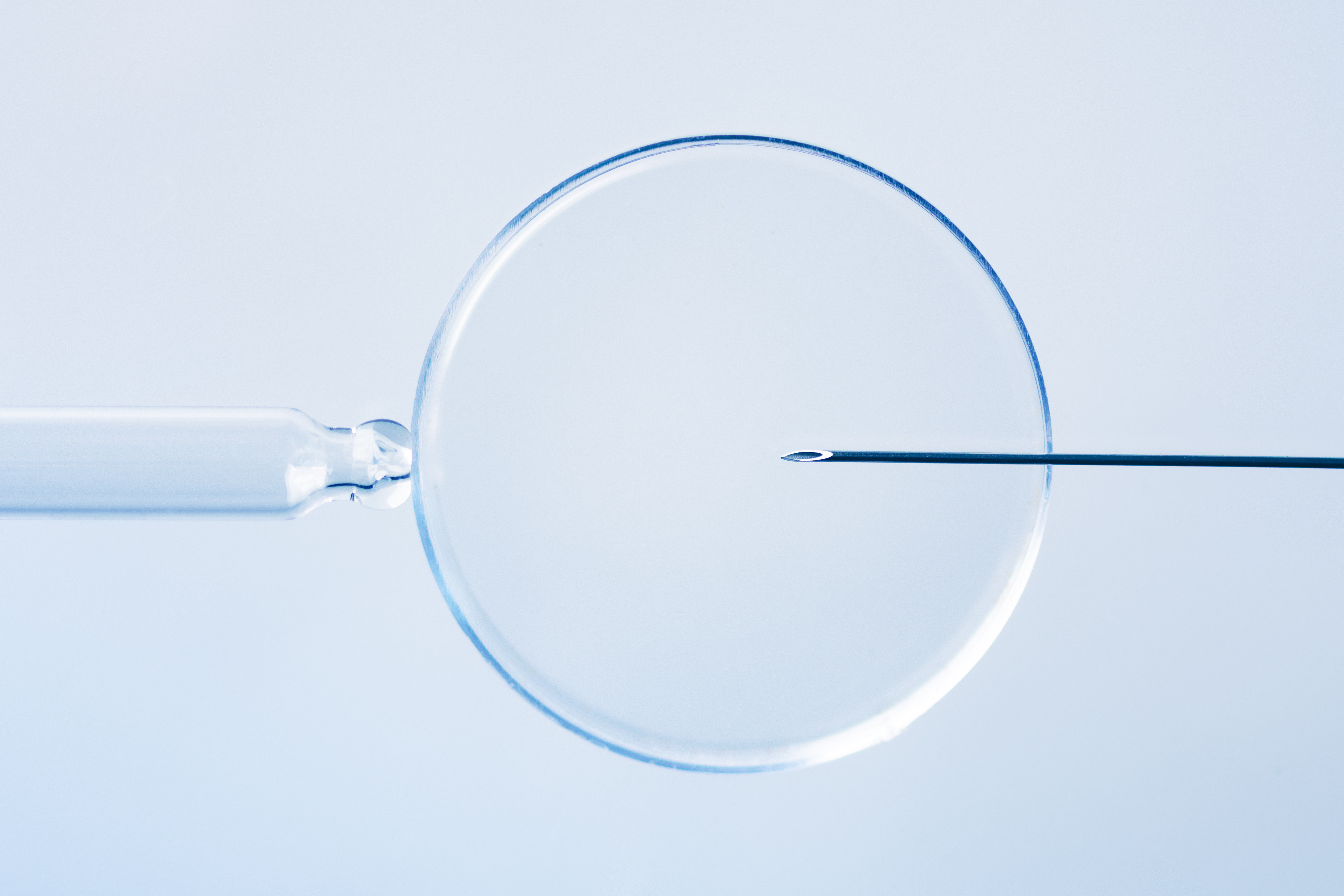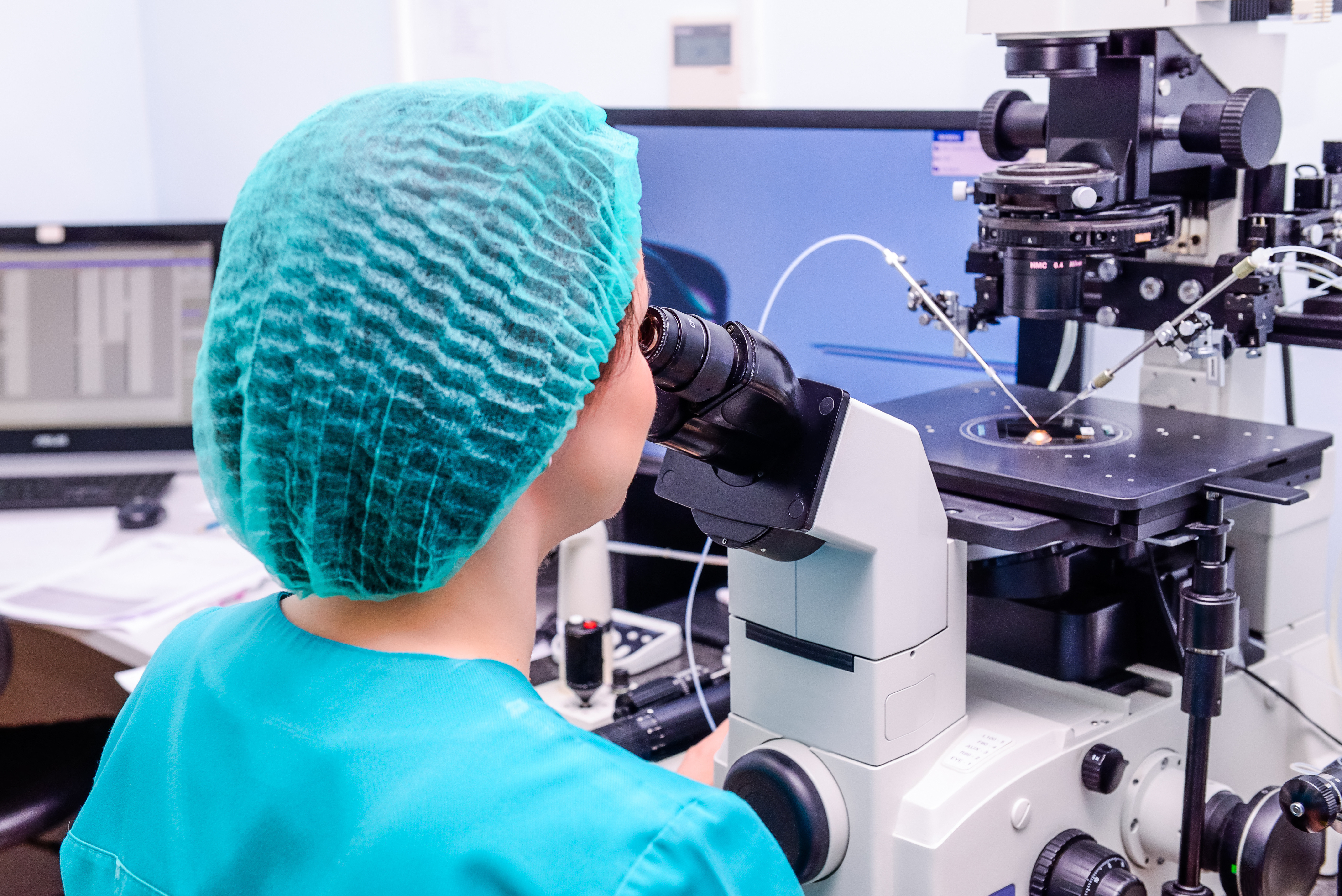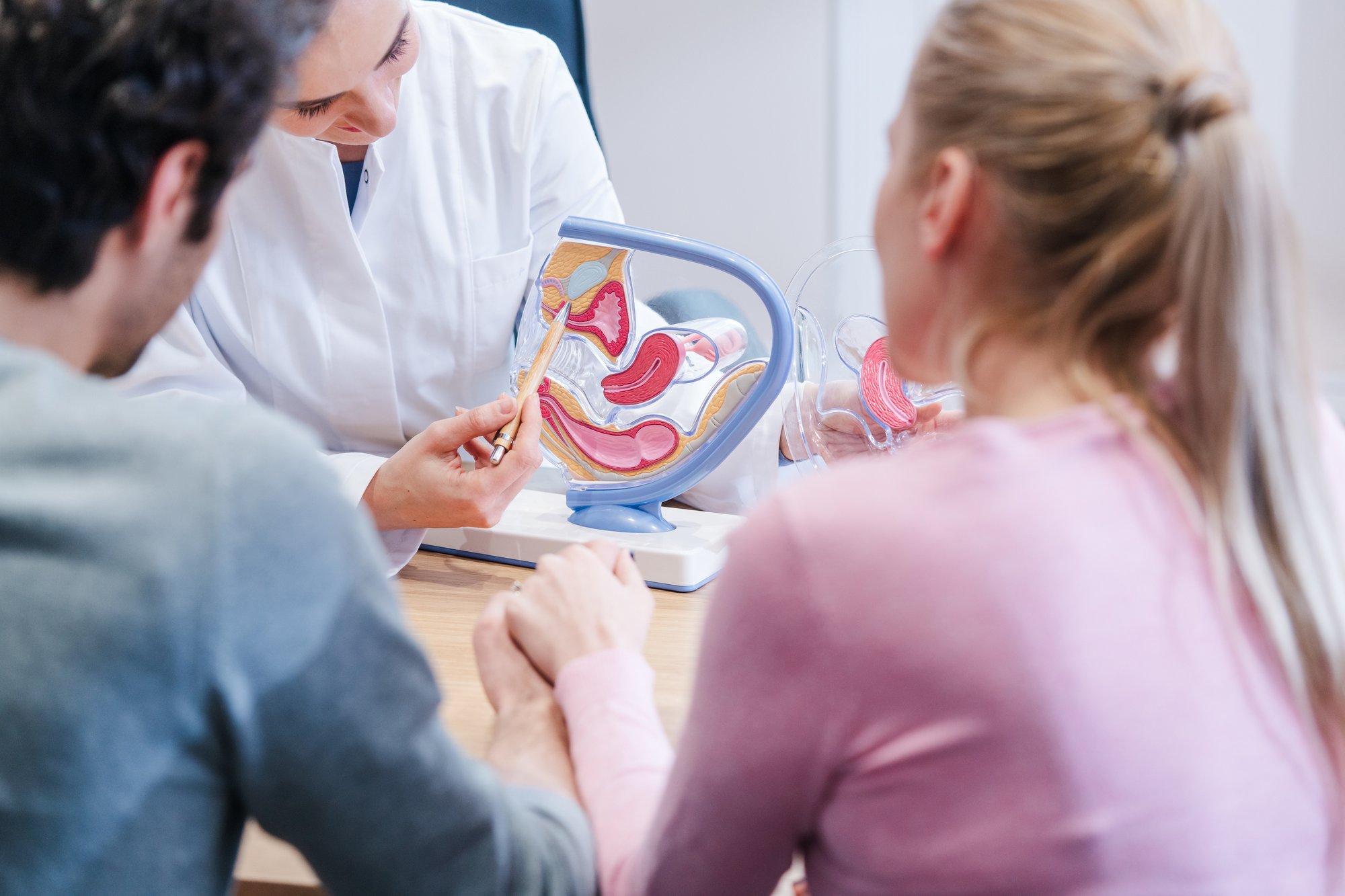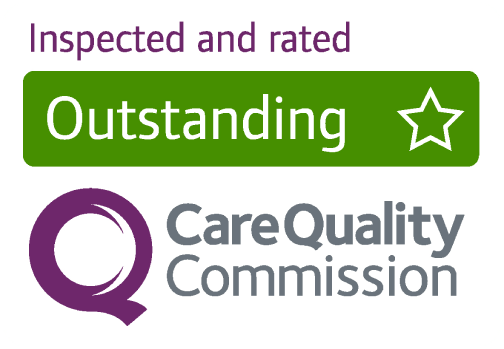Female fertility testing
We understand that this journey can be filled with questions and emotions. That’s why our experienced team is here to guide and support you every step of the way.
Our fertility testing approach
Our tailored testing processes are designed with you at the centre; we ensure you are provided with a service that is discrete, professional and comfortable at every stage, and which leaves you well informed.
Step 1: Personalised consultation
Step 2: Hormone blood tests
Both levels of testing include:
- Anti-Mullerian Hormone (AMH):This hormone gives us insights into your ovarian reserve, or the number of eggs remaining in your ovaries
If you are actively trying to conceive and have opted for the comprehensive female fertility check-up, the following tests will also be performed:
- Follicle-Stimulating Hormone (FSH): This hormone helps us evaluate your ovarian function and egg quality.
- Estradiol (E2): This hormone is essential for egg maturation and the development of the uterine lining.
- Luteinizing Hormone (LH): This hormone triggers ovulation and is important for egg release.
- Prolactin: High levels of this hormone can interfere with ovulation.
- Thyroid Profile (Free T4, TSH): Thyroid function plays a role in overall hormonal balance and can impact fertility.
- Vitamin D: Adequate vitamin D levels are important for reproductive health.
Step 3: Ultrasound scan
Step 4: Follow-up consultation
Approximately one week after your initial tests, you'll have a follow-up consultation with your fertility specialist. We'll discuss your results in detail, explaining what they mean for your fertility health. Based on your results, we'll provide personalised recommendations, which may include:
- Lifestyle changes: We may suggest modifications to your diet, exercise routine, or stress management techniques to optimise your fertility.
- Further investigations: In some cases, we may recommend additional tests. The most common is the Triple Test. This includes a further pelvic scan, 3D saline infusion scan (SIS), and tubal patency test to examine the fallopian tubes for abnormalities.
- Fertility treatments: If necessary, we'll discuss the various treatment options available to help you achieve your dream of starting a family.
Understanding your results

Why choose us?
Expert fertility specialists:

Personalised approach:

State-of-the-art technology:

Supportive environment:


Expertise that reassures

Let's Talk About What's Right for You
Book a free 15-minute consultation with our New Patient Team. We'll help you understand what's relevant to you and what to expect so you can move forward with confidence.
- Confidential
- No Obligation
- Explore Fertility Options
*Want to book a Doctor's appointment? Get in touch:




What is female fertility testing?
How is women's fertility tested?
Women's fertility is typically tested through a combination of methods, including:
- Blood tests to measure hormone levels
- Transvaginal ultrasound to assess ovarian reserve and uterine health
- Hystero Contrast Sonography (HyCoSy) to check fallopian tube patency
- Pelvic examination to detect any physical abnormalities
When should I get tested for fertility?
You should consider fertility testing if:
- You're under 35 and have been trying to conceive for a year without success
- You're 35 or older and have been trying for 6 months
- You have irregular or absent periods
- You have a known medical condition that may affect fertility
- You're planning to delay childbearing and want to assess your ovarian reserve
What are the main types of tests for female fertility?
The main types of female fertility tests include:
- Anti-Müllerian Hormone (AMH) test
- Follicle Stimulating Hormone (FSH) test
- Luteinizing Hormone (LH) test
- Estradiol test
- Progesterone test
- Transvaginal ultrasound
- Hysterosalpingogram (HSG)
- Hystero Contrast Sonography (HyCoSy)
- Laparoscopy (in some cases)
What is an ovarian reserve test?
An ovarian reserve test assesses the quantity and quality of a woman's remaining eggs. The most common methods are:
- Anti-Müllerian Hormone (AMH) blood test
- Antral Follicle Count (AFC) via transvaginal ultrasound
These tests help predict how well the ovaries may respond to fertility treatments
How accurate are female fertility tests?
What does each hormone level indicate?
- AMH: Indicates ovarian reserve
- FSH: High levels may suggest diminished ovarian reserve
- LH: Helps determine ovulation timing
- Estradiol: Assesses ovarian function and egg development
- Progesterone: Confirms ovulation and assesses luteal phase adequacy
What causes low fertility in females?
Common causes of low fertility in females include:
- Age-related decline in egg quality and quantity
- Ovulation disorders (e.g., PCOS)
- Fallopian tube blockage
- Uterine abnormalities
- Endometriosis
- Hormonal imbalances
- Lifestyle factors (e.g., smoking, extreme weight, stress)
What is considered a "normal" AMH level, and what do other hormone levels mean?
Is a fertility test painful?
Can conditions like endometriosis or fibroids affect my fertility test results?
How does my menstrual cycle length and regularity affect my fertility?
Does the timing of my cycle matter for certain fertility tests?
Yes, the timing of certain tests is crucial. For example:
- FSH and estradiol are typically tested on day 2-4 of the menstrual cycle
- Progesterone is usually tested 7 days before the expected period
- AMH can be tested at any time during the cycle
Why is it important to be on between days 2 – 5 of my cycle during the initial check-ups?
There are a few reasons why this specific timing is important:
Baseline hormone levels
Days 2-5 of the menstrual cycle, (the early follicular phase), provide the most stable and representative baseline levels for several crucial reproductive hormones:
- Follicle-Stimulating Hormone (FSH): FSH levels are most stable at this time, allowing for an accurate assessment of ovarian function and egg supply.
- Estradiol (E2): Testing E2 during this period helps evaluate ovarian function and egg quality.
- Luteinizing Hormone (LH): Early cycle LH testing can help diagnose hormonal imbalances like PCOS.
Ovarian reserve assessment
Testing during this period provides the most accurate picture of a woman's ovarian reserve:
- The Anti-Müllerian Hormone (AMH) test, while not strictly day-dependent, is often conducted alongside these other tests to provide a comprehensive evaluation of egg reserve.
- These early cycle tests help predict how a woman might respond to fertility treatments like IVF.
Diagnostic accuracy
Conducting tests during this specific window ensures the most clinically meaningful results:
- Hormone levels fluctuate significantly throughout the menstrual cycle. Testing outside this window could lead to misinterpretation of results.
- Reference ranges used by doctors are based on hormone levels during this early follicular phase, making comparisons and diagnoses more accurate.
What treatment options are available if an issue is found?
Treatment options depend on the specific issue identified and may include:
- Fertility medications to stimulate ovulation
- Intrauterine insemination (IUI)
- In vitro fertilization (IVF)
- Surgery for conditions like endometriosis or fibroids
- Lifestyle modifications
Your fertility specialist will recommend the most appropriate treatment based on your individual circumstances.

Testimonials
“I cannot express enough gratitude for the exceptional care and support we received at Harley Street Fertility Clinic under the guidance of Dr. Venkat. From the moment we walked through the doors, we were met with warmth and professionalism from the entire team.
Thanks to Dr. Venkat and her team, we felt supported every step of the way, and we are now overjoyed to be expecting our first child.
If you are looking for a fertility clinic that combines cutting-edge technology with heartfelt care, I highly recommend Harley Street Fertility Clinic and Dr. Venkat. They truly go above and beyond to make dreams come true.”
Darsan Trivedi

“We conceived our second IVF baby - our daughter through HSFC and the entire experience was brilliant!
I recommend Dr Venkat and HSFC any day. I have gone through a failed cycle with another private clinic and honestly the compassion and care I have seen in Dr Venkat’s eyes, I have not seen in any other fertility Drs I have come across until now.
Thanks Dr Geetha Venkat and Mr Suvir Venkat for helping us to bring Devi Veda in this world. We are ever so grateful.”
Radha Devani

“I am very happy with HSFC having suffered 5 early miscarriages and being told by a previous fertility clinic I would never have my own child. Dr Venkat told me I would have my own baby and she fulfilled her promise.
I am now pregnant with a baby girl all my dream have come true! I am happy with the care I received from all the staff at HSFC, from the very beginning when my eggs were collected all the testing I had, and when the embryo was put back in was very good. I was blood tested all the time to keep an eye on my blood levels for different things.
Dr Venkat found I had egg/ embryo issues, elevated killer cells, thyroid issues and with the emma, Alice and era I found out that I needed the embryo put in a different day than originally thought. HSFC has changed my life I can’t thankyou them enough!”
Rebecca Sadler

Take the next step towards growing your family
Ready to take control of your fertility health? Book a consultation with our fertility specialiststoday and embark on your journey to parenthood with confidence.

